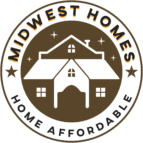As cities continue to grow more crowded, connected, and climate-conscious, the future of modular homes in cities will take center stage in redefining urban living. By 2050, modular homes are poised to become a cornerstone of sustainable development and smart infrastructure, meeting the needs of a fast-evolving population. From adaptive technologies to eco-friendly design, these homes are evolving with the cities they serve.
Let’s take a futuristic look into how modular homes in Iowa and beyond could transform urban life as we know it.
The Rise of Smart Urban Living
With the advancement of smart city technology, homes will no longer be standalone units—they’ll be integrated into a citywide network of intelligent systems. Think traffic lights synced with commute patterns, home energy systems that adapt to citywide power usage, and AI-driven appliances learning resident behavior.
In this ecosystem, modern modular homes in Iowa will thrive. These homes will come pre-equipped with sensors, automated climate controls, smart lighting, and waste reduction systems that talk to the larger smart grid, improving both personal comfort and citywide energy efficiency.
Modular Homes as Urban Resilience Tools
As climate events become more severe and unpredictable, the need for resilient housing increases. Modular construction offers a future-forward solution due to its durability, adaptability, and quick deployment. Cities in 2050 will lean into this advantage by integrating manufactured homes into disaster recovery plans and emergency housing solutions.
Urban planners may designate entire districts of smart modular homes designed to withstand floods, high winds, and extreme heat—all made possible through robust prefabricated engineering.
Vertical Villages and Space Optimization
One of the biggest urban challenges is space. Modular technology will evolve from single-level homes to multi-story, vertical communities. These “stackable” modular units will resemble plug-and-play building blocks, enabling cities to expand housing vertically without large-scale infrastructure projects.
This evolution will be especially valuable in urban cores like Des Moines, where new homes for sale might one day be part of high-rise modular communities with communal gardens, co-working pods, and AI-managed amenities.
Environmentally Conscious by Design
As environmental regulations tighten and sustainability becomes non-negotiable, modular homes will lead the way. Future models will be constructed using carbon-negative materials, green insulation, solar tiles, and greywater recycling systems.
This green evolution aligns with the growing demand for luxury prefab homes in Iowa, where environmental consciousness meets upscale design. Smart HVAC, biodegradable construction, and solar-integrated roofing will be standard rather than luxury.
Autonomous and Off-Grid Capabilities
With energy grids becoming strained, tomorrow’s modular homes will gain self-sustaining capabilities. Many will include independent power systems, battery storage, and water filtration. In remote or underserved urban areas, these homes will ensure access to essential services even when infrastructure fails.
Such self-sufficiency enhances the value of custom modular homes, allowing families to live comfortably in areas previously considered uninhabitable or too risky due to unreliable city utilities.
Economic Accessibility Without Compromise
In the future, owning a smart, eco-friendly home won’t be a luxury reserved for the wealthy. Thanks to factory efficiencies and scalable materials, manufactured mobile homes will offer all the perks of modern technology and sustainability—at a fraction of the price of traditional construction.
This democratization of homeownership will empower more residents to transition from rental cycles to owning innovative, efficient spaces like new mobile homes, strengthening urban economies from the inside out.
Integration With Urban Transportation and Mobility
2050 will see cities designed for electric, autonomous vehicles, micromobility, and high-speed public transit. Future prefab homes will integrate with transportation hubs and be located near smart roads and hyperloop terminals, minimizing reliance on personal cars and reducing emissions.
Builders will strategically place modular homes for sale along planned transit lines, promoting both sustainable commuting and urban density.
Are You Ready to Explore the Possibilities of Modular Living In Iowa?
If you’re looking for modular homes for sale in Iowa, Midwest Homes offers a range of options that reflect the future of urban living. Whether you’re interested in luxury prefab homes or a more affordable solution, we can help you find the home of your dreams. Reach out today to start your journey toward a smarter, more sustainable home in Iowa.

